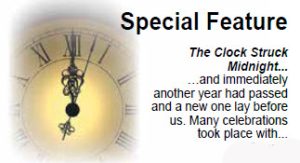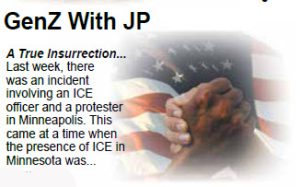 By: Eric Betts
By: Eric Betts
Living in the present is a mindful practice that opens the door to a fuller appreciation of the here and now. This concept, often espoused by philosophers and mental health professionals alike, encourages us to let go of past regrets and future anxieties to wholeheartedly embrace the current moment. By doing so, we can find deeper joy, gratitude, and a greater sense of connection with the world around us. This state of being present allows us to fully engage with each experience, further enriching our understanding and appreciation of life.
Drawing from the insights of Dominic Barton, global managing director of McKinsey and Company, Rasmus Hougaard and Jacqueline Carter published in Harvard Business Review a unique perspective on leadership and present-mindedness. They point to the ways in which Dominic Barton emphasizes the importance of living in the present moment, particularly in the context of leadership and organizational management. Even with a daily itinerary packed with crucial meetings, each demanding attention and decision-making, Barton recognizes that being present is not just a choice, but a necessity. “When I’m with people during the day, I’m doing my best to be focused, I’m present with them,” Barton shares. He attributes his presence not just to his own energy drawn from social interactions, but also to the motivational impact his undivided attention can have on others. In his perspective, absence of presence can be discouraging for those involved in the conversation, even rendering the meeting pointless.
The individuals we interact with may not be cognizant of what transpired in our lives just moments prior to the meeting, and it is not their responsibility to know. It is our duty, as leaders, to show up fully prepared and present, making the most of the finite time we have with each individual. According to Barton, being mindfully present is a disciplined skill. It demands self-control to remain task-oriented, undeterred by potential distractions or lingering issues. It also needs the mental acuity to maintain a laser-like focus. Barton finds deep gratification in being present throughout his day, considering it the cornerstone in maximizing every moment spent with each individual.
Being present is a critical skill set that extends beyond the realm of leadership and organizational management, permeating various career paths. In healthcare, for instance, doctors and nurses who are in the moment can provide comprehensive, empathetic care, enhancing patient comfort and trust. In education, teachers who are fully engaged with their students facilitate an open, dynamic learning environment, fostering intellectual growth and creativity. Similarly, in the world of performing arts, a present actor or musician can deliver a captivating, emotionally resonant performance that deeply engages the audience. Even in the tech industry, programmers and designers fully engrossed in their work can innovate and create products that redefine the boundaries of what’s possible. Thus, across professions, being present enhances performance, contributes to job satisfaction, and yields meaningful, impactful results.
In stark contrast, when leaders are not emotionally present, the repercussions can be detrimental to both the individual and the organization. Absence of emotional presence often manifests as self-absorption or distraction, creating a chasm between the leader and their team. This can lead to a breakdown in communication, impeding information flow and diluting the clarity of organizational objectives. Moreover, an emotionally absent leader may fail to empathize effectively with their team, resulting in decreased morale, lower job satisfaction, and high turnover rates. In extreme cases, such leadership can engender a toxic work environment, breeding mistrust and promoting disengagement. Therefore, emotional presence is not just a virtue but a necessity for effective leadership.
Emotional absence in leadership is often invisible and unintentional, yet it has palpable effects. Leaders may unknowingly exhibit signs of emotional disconnection, tied up in a whirlwind of responsibilities, targets, and deadlines, which makes the neglect of emotional presence an easy oversight. This disconnection might manifest subtly through overlooked body language or unobserved tones of conversation. Over time, these seemingly negligible nuances compile into significant communication gaps, fostering an atmosphere of indifference or worse, hostility. While the leader may not directly intend this outcome, their obliviousness to their emotional presence—or lack thereof—creates a very real, harmful impact on the team’s morale and productivity. Therefore, it’s crucial for leaders to cultivate self-awareness and emotional intelligence, not only to detect these unintentional lapses but also to address them effectively.
As leaders and seekers of purpose, let us value the present moment. It is in the ‘now’ that we truly connect, communicate, and lead. Remember, your emotional presence today lays the foundation for successful leadership and purposeful living tomorrow. To those who appreciate the 46th Psalm, you may be reminded that the Divine is depicted as “a very present help in trouble.” If we are to reflect this type of grace, we too should learn how to be “very present.”
Additionally, in a world where we’re always chasing the future, we often forget to appreciate the beauty of the present moment. We’re constantly rushing through life, focusing on what’s ahead, and missing out on the wonderful blessings right in front of us. The present is like a peaceful symphony that brings clarity to those striving for success, brings calm to the stressed, and reminds us to be fully present in our busy lives. It’s a gentle reminder to slow down, enjoy the moment, and cherish life’s simple joys. Let’s take a moment to celebrate today, be grateful for what we have now, and truly live in the present.
By: Eric Betts
Udemy Instructor in Religion, Leadership and Ethics





